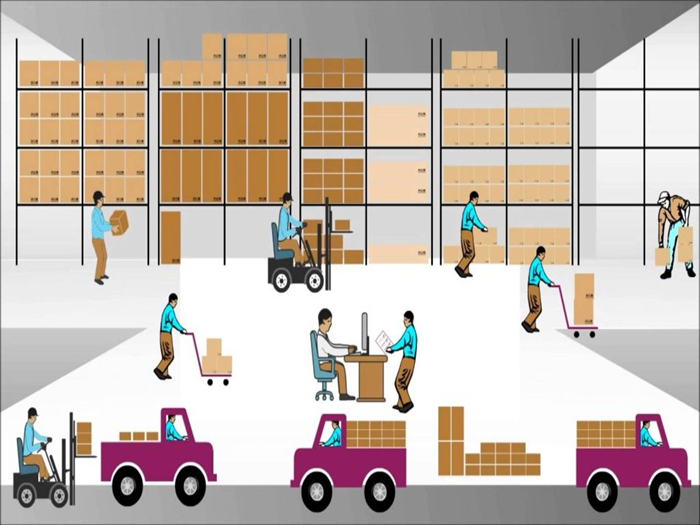
In today's fast-paced business environment, optimizing your supply chain is essential for staying competitive and meeting customer demands. One of the most effective ways to achieve this optimization is by integrating a Warehouse Management System (WMS) and a Transportation Management System (TMS). In this article, we will explore how Kapoor Diesels can benefit from implementing these systems.
Supply chain optimization involves maximizing efficiency and minimizing costs throughout the entire supply chain process, from production to delivery. By streamlining operations and eliminating inefficiencies, companies can improve their bottom line and deliver better service to customers.
Importance of Warehouse Management System (WMS)
Streamlining Inventory Management
A WMS helps Kapoor Diesels effectively manage their inventory by providing real-time visibility into stock levels, locations, and movements. This streamlines the picking, packing, and shipping processes, reducing errors and improving order accuracy.
Enhancing Order Fulfilment Processes
With a WMS in place, Kapoor Diesels can fulfil customer orders more quickly and accurately. The system automates tasks such as order processing and inventory replenishment, leading to faster order turnaround times and higher customer satisfaction.
Optimizing Space Utilization
By optimizing warehouse layout and storage strategies, a WMS enables Kapoor Diesels to make the most efficient use of available space. This reduces storage costs and minimizes the need for additional warehouse facilities as business grows.
A TMS allows Kapoor Diesels to optimize delivery routes based on factors such as distance, traffic, and delivery windows. This reduces fuel consumption, transportation costs, and delivery times, leading to overall cost savings and improved service levels.
Cost Reduction
By consolidating shipments, optimizing carrier selection, and negotiating favourable rates, a TMS helps Kapoor Diesels reduce transportation costs. This allows them to allocate resources more effectively and reinvest savings into other areas of the business.
Improved Customer Service
With better visibility and control over transportation operations, Kapoor Diesels can provide customers with accurate delivery estimates and proactive updates on shipment status. This enhances the overall customer experience and strengthens relationships with key stakeholders.
Integration of WMS and TMS
Real-time Visibility
By integrating WMS and TMS systems, Kapoor Diesels can gain real-time visibility into both warehouse and transportation operations. This allows for better coordination between departments, more accurate demand forecasting, and faster response times to changing market conditions.
Efficient Resource Allocation
With integrated systems, Kapoor Diesels can optimize resource allocation across the supply chain. For example, they can dynamically allocate inventory based on demand forecasts and transportation capacity, minimizing stockouts and reducing excess inventory levels.
Enhanced Decision-making
By consolidating data from WMS and TMS systems, Kapoor Diesels can make more informed business decisions. Whether it's optimizing inventory levels, adjusting transportation routes, or renegotiating supplier contracts, integrated systems provide the insights needed to drive continuous improvement.
Case Study: Kapoor Diesels
Kapoor Diesels, a leading supplier of industrial equipment, recently implemented a WMS and TMS to optimize their supply chain operations. By integrating these systems, they were able to reduce order fulfilment times by 30%, cut transportation costs by 20%, and improve overall customer satisfaction.
Key Considerations for Implementing WMS and TMS
Scalability
When choosing WMS and TMS solutions, Kapoor Diesels should consider scalability to accommodate future growth and evolving business needs. The systems should be flexible enough to support increased transaction volumes, additional warehouse locations, and changes in transportation requirements.
Compatibility with Existing Systems
It's important for WMS and TMS systems to integrate seamlessly with Kapoor Diesels' existing technology infrastructure, including ERP systems, inventory management software, and fleet tracking solutions. This ensures smooth implementation and avoids disruptions to daily operations.
Training and Support
To maximize the benefits of WMS and TMS systems, Kapoor Diesels should invest in comprehensive training and ongoing support for employees. This ensures that staff members are proficient in using the systems and can troubleshoot any issues that arise, minimizing downtime and maximizing productivity.
Conclusion
In conclusion, integrating a Warehouse Management System (WMS) and a Transportation Management System (TMS) can help Kapoor Diesels optimize their supply chain operations, reduce costs, and improve customer service. By streamlining inventory management, enhancing order fulfilments processes, and leveraging real-time visibility, Kapoor Diesels can gain a competitive edge in today's dynamic market.